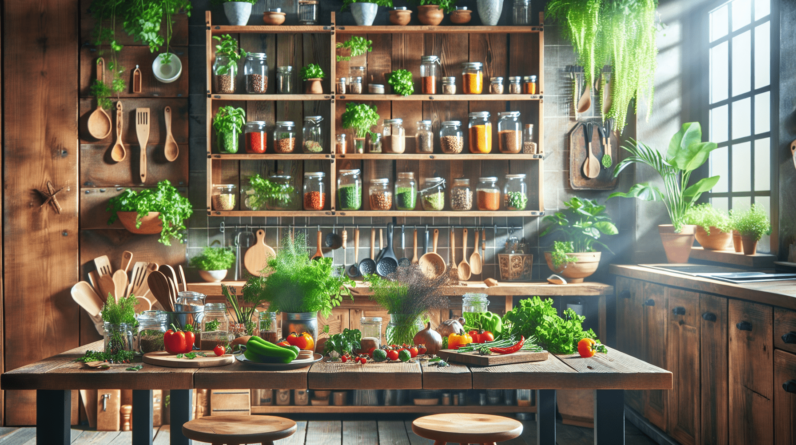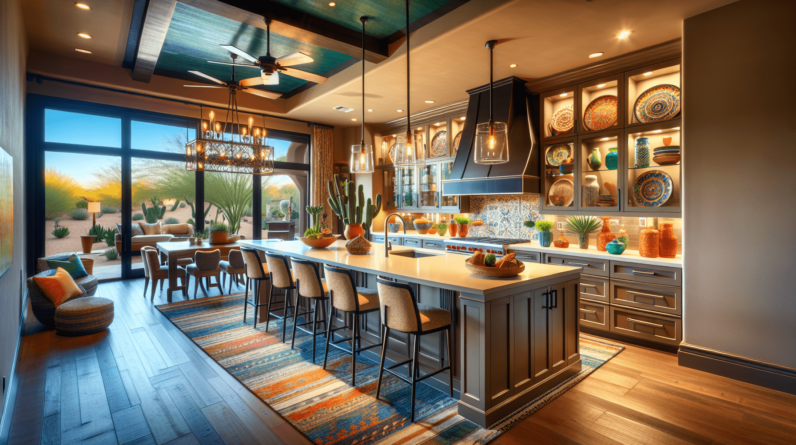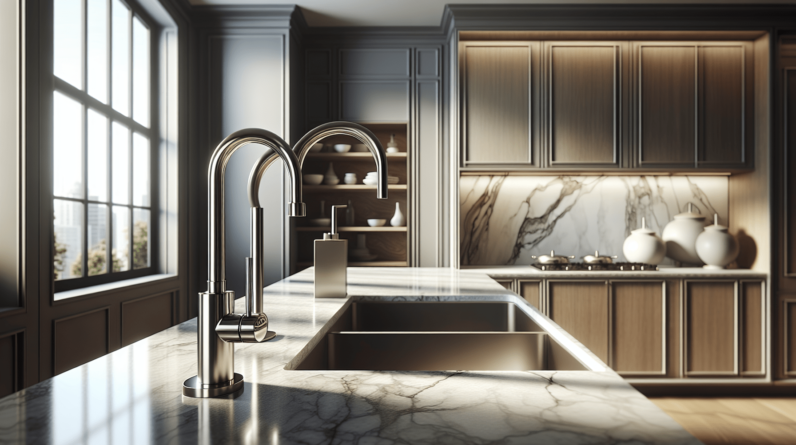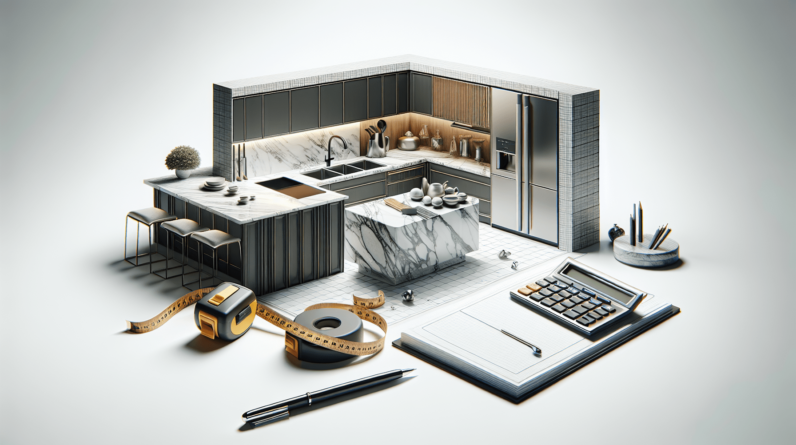
Have you ever considered tackling a kitchen remodeling project but felt overwhelmed by the potential costs involved? It’s a common concern for many homeowners. Understanding how to estimate your expenses can help you plan better and make informed decisions along the way.
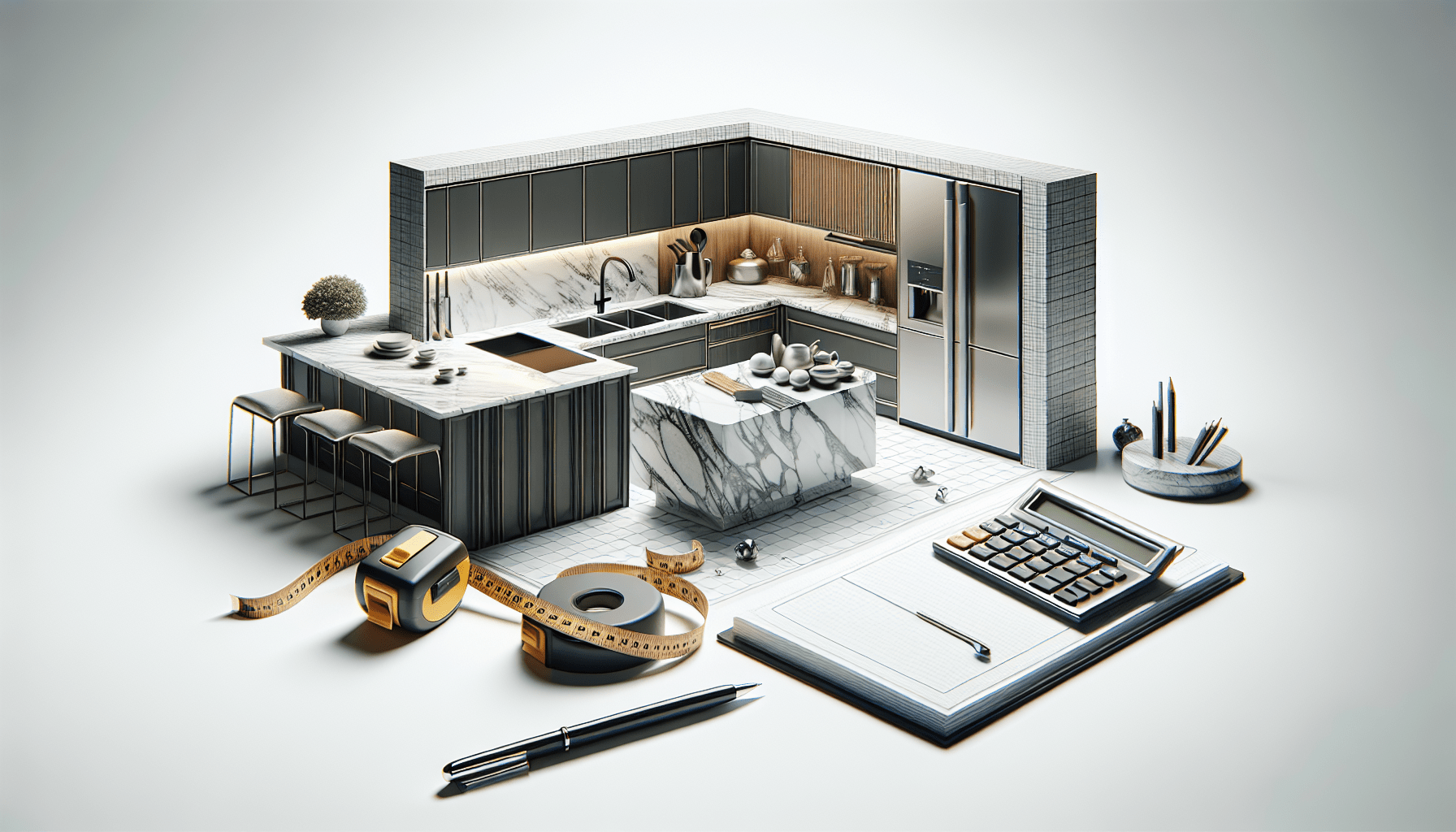
Understanding Kitchen Remodeling Costs
When it comes to remodeling your kitchen, various factors influence the overall cost. You might be wondering what specific elements contribute to the final bill. Let’s break it down together, so you have a clearer picture of what to expect.
Factors Influencing Costs
Several key aspects affect the cost of your kitchen renovation:
- Size of the Kitchen: Bigger kitchens typically require more materials and labor, increasing costs.
- Quality of Materials: The choice of materials you select, from countertops to flooring, has a substantial impact on your budget.
- Labor Costs: Hiring professionals can add to your expenses, but their expertise can also save you money in the long run by ensuring high-quality work.
- Design Complexity: A more intricate design may demand specialized labor or custom materials, further raising expenses.
Itemized Cost Breakdown
It can be helpful to understand costs by category. Let’s look at a typical breakdown of a kitchen remodeling project.
1. Cabinets
Cabinets often take a large chunk of your budget, depending on their size, quality, and style.
| Type of Cabinet | Cost Range |
|---|---|
| Stock Cabinets | $70 – $150 per linear foot |
| Semi-Custom Cabinets | $100 – $400 per linear foot |
| Custom Cabinets | $500 – $1,500 per linear foot |
As you can see, your choices in cabinet style can significantly impact your overall budget. If you’re looking for a cost-effective option, stock cabinets might be the way to go!
2. Countertops
Choosing your countertops can bring style and functionality to your kitchen. Here are some popular options and their approximate costs:
| Type of Countertop | Cost Range |
|---|---|
| Laminate | $20 – $50 per square foot |
| Granite | $40 – $100 per square foot |
| Quartz | $50 – $150 per square foot |
| Solid Surface | $40 – $100 per square foot |
Remember, while granite looks stunning and is durable, options like laminate can offer a fresh look without breaking the bank.
3. Appliances
Depending on your needs and brand preferences, appliance costs can vary widely.
| Appliance | Cost Range |
|---|---|
| Refrigerator | $500 – $2,000 |
| Oven/Range | $500 – $3,000 |
| Dishwasher | $300 – $1,500 |
| Microwave | $100 – $700 |
Investing in high-quality appliances may save you money on future repairs and replacements, so consider their long-term value in addition to the initial cost.
4. Flooring
The decision on a kitchen floor impacts both functionality and aesthetics. Here are some cost estimates for popular flooring choices:
| Type of Flooring | Cost Range |
|---|---|
| Vinyl | $2 – $7 per square foot |
| Tile | $5 – $15 per square foot |
| Hardwood | $5 – $10 per square foot |
| Laminate | $1 – $5 per square foot |
Hardwood floors can add warmth and character to your kitchen, while tile can be a great way to enhance durability, especially in bustling households.
5. Plumbing and Electrical Work
If your remodel involves moving plumbing fixtures or electrical outlets, it’s wise to account for these additional costs:
- Plumbing: $45 – $200 per hour, depending on the complexity of the job.
- Electrical: $50 – $100 per hour, especially if new fixtures are being installed.
Feel free to explore DIY options for aspects like painting or installing fixtures, but consult professionals for major plumbing and electrical tasks to avoid any mishaps.
Budgeting for Your Remodel
Establishing your overall budget can transform your remodeling project from a daunting task into an exciting adventure.
Setting a Realistic Budget
Begin by assessing how much you’re willing to spend and what percentage of your budget each category of your kitchen should occupy. A good rule of thumb is to allocate:
- 30% for cabinets
- 20% for appliances
- 15% for countertops
- 10% for flooring
- 25% for labor and additional features
Having this distribution in mind can guide your spending and help you prioritize your investments.
Contingency Fund
It’s wise to set aside 10-20% of your budget for unexpected costs that may crop up during the renovation process. This fund will provide peace of mind as you tackle your project, ensuring you’re prepared for any bumps along the way.
Kitchen Remodeling Cost Calculator
Now that you understand the various factors that determine the price of your kitchen renovation, how can you calculate it all?
Estimating Your Costs
To get a clearer view of your potential expenses, consider using a kitchen remodeling cost calculator. You’ll typically input details such as:
- Kitchen size
- Material choices
- Labor requirements
These tools can provide you with an estimate based on averages. It’s a good starting point but remember to adjust based on your specific circumstances.
Here’s a simple example of how you might calculate costs based on the following hypothetical inputs:
- Size of kitchen: 150 square feet
- Cabinet cost (mid-range): $3000
- Countertop cost (granite): $1200
- Appliance cost: $4000
- Flooring cost (tile): $1200
- Labor cost (30% of total materials): $2000
Sample Calculation
| Item | Estimated Cost |
|---|---|
| Cabinets | $3,000 |
| Countertops | $1,200 |
| Appliances | $4,000 |
| Flooring | $1,200 |
| Labor (30% of materials) | $2,000 |
| Total Estimated Cost | $11,400 |
This example provides a basic understanding of how the numbers can add up and could be a useful framework for your personal calculations.
Financing Your Kitchen Remodel
If your budgeting calculations show that your dream kitchen exceeds your available funds, don’t worry! There are various financing options to help make your project a reality.
Home Equity Loan
A home equity loan allows you to borrow against the equity you’ve built in your home. Interest rates are generally lower than credit cards, making this a popular choice for larger projects.
Personal Loan
A personal loan doesn’t require collateral but may come with higher interest rates. This option provides a quicker influx of cash but should be considered cautiously.
Credit Cards
For smaller expenses, using a credit card can sometimes offer rewards and convenience. However, be mindful of interest rates to avoid falling into debt.
Finding the Right Contractor
Choosing the right contractor can significantly influence your remodeling experience. You’ll want a partner who understands your vision and can work within your budget.
Researching Contractors
Start your search by:
- Asking for recommendations: Friends, family, or neighbors can provide guidance based on their own experiences.
- Checking online ratings: Websites like Angie’s List or HomeAdvisor feature reviews that can give insight into contractor reputations.
Interviewing Candidates
Once you’ve shortlisted a few options, schedule interviews to gauge their understanding and approach. Key questions to ask include:
- What’s your experience with kitchen remodels?
- Can you provide references?
- What’s your proposed timeline for this project?
Comparing Estimates
After interviews, ask for written estimates that detail costs. This allows for an easy comparison of services and pricing to help you make informed decisions.
Conclusion
Remodeling your kitchen can be an exciting journey, bringing new life to one of the most important spaces in your home. By understanding the various costs, setting a realistic budget, and planning effectively, you can pave your way to a successful renovation.
Remember, it’s essential to take the steps necessary to ensure everything is calculated and accounted for. Discussing your vision with contractors about your expectations and budget will lead to a smoother remodeling process and, ultimately, a kitchen and experience you’ll love. Happy remodeling!





